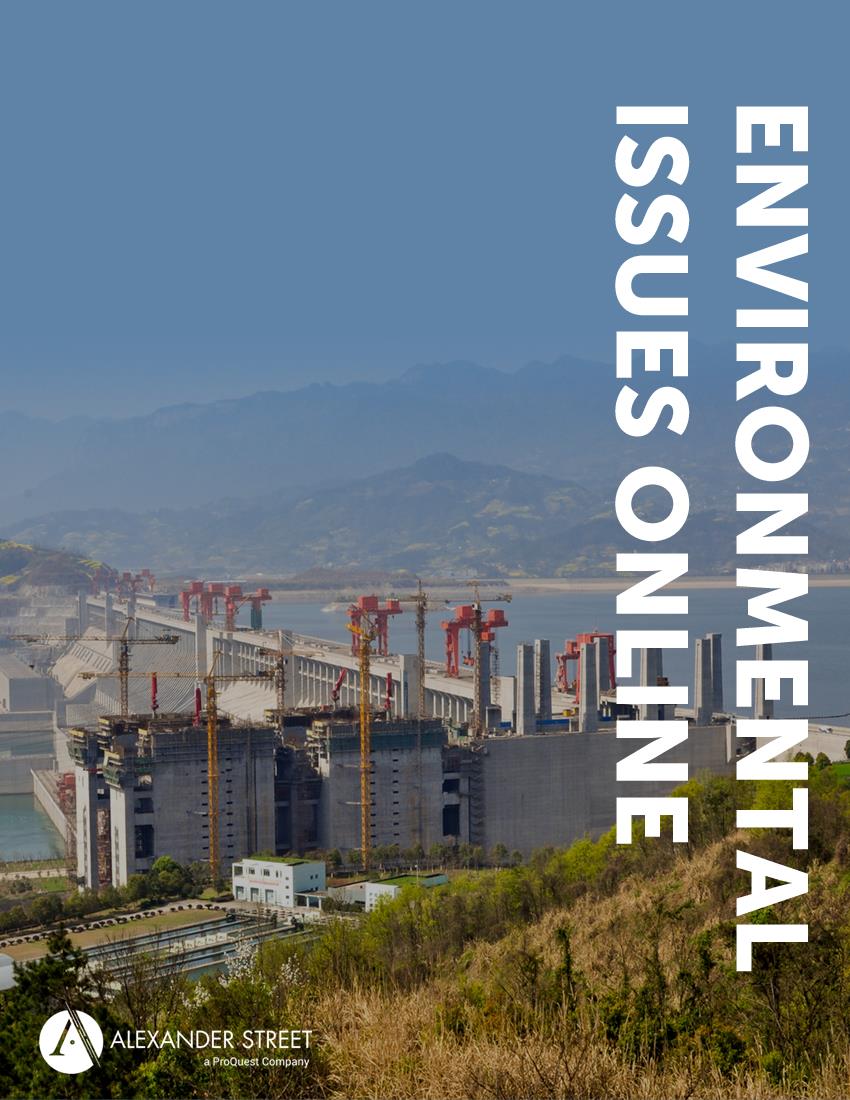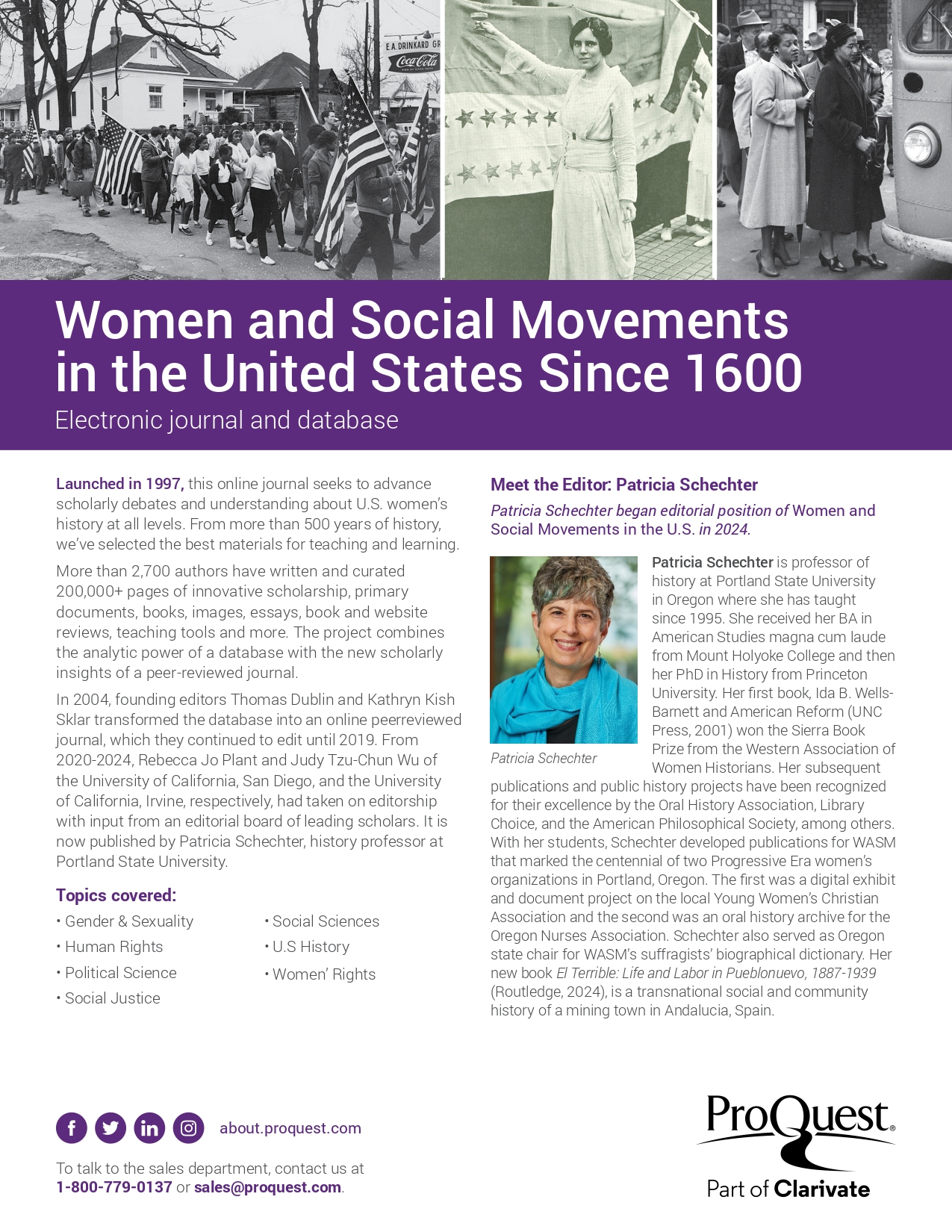
Trade and Globalization Studies Online
Trade and Globalization Studies Online offers an examination of trade policies, financial crises, emerging markets and technological innovations that unite the world in an ever-changing system of trade. It provides valuable historical context and policy insights with particular emphasis on real-world examples and events. The collection explores the profound societal impact of global trade through books and case studies, archival materials, and documentaries.
Understanding trade policies, financial crises, emerging markets, and technological innovations is crucial for business professionals, policymakers and governments as the decisions they make can have a profound impact on economies, trading companies, and individuals. By studying the societal implications of global trade, researchers and academics can examine the distributional effects of trade, analyze the dynamics of global supply chains and explore the challenges and opportunities faced by different communities and countries.
Trade and Globalization Studies Online offers 125 hours through thought-provoking video documentaries, and 100,000 pages of text materials — archives, books and case studies on current trade topics from the Institute of Diplomacy. These varied formats offer alternative perspectives and the analytical framework needed to examine the societal impact of global trade. The video materials enhance the learning experience with dynamic visuals and compelling narratives. The extensive textual resources offer in-depth analysis, research papers, policy documents, and historical records that contribute to a comprehensive understanding of global trade and its effects.
With its breadth of content and emphasis on real-world relevance, Trade and Globalization Studies Online serves as an invaluable resource for academics, policymakers, business professionals, and anyone seeking a deeper understanding of the global economy and its interconnectedness.
Areas of Coverage include:
Food and Commodities; Trade Negotiations, and Governance; Financial crises; Emerging Markets; Health and Disease; Energy; the Arms Trade and New Technologies.
Highlighted Events and Topics:
- Asian Financial Crisis: analyze the causes and consequences of the Asian Financial Crisis of 1997-1998 and its effects on the economies of East Asian countries.
- The Great Recession (2007-2009): explore the global financial crisis that occurred in 2007-2009, its causes, and the responses of different countries to mitigate its impact.
- The Marlboro Man and Japanese Import Policy toward Cigarettes: examine the impact of Japanese import policies on cigarette trade, including the marketing strategies of Marlboro cigarettes.
- Drug Trade, Crime, and Security: examine various aspects of the drug trade, money laundering, and their implications for global security.
- Global Consumerism: explore the rise of consumer culture and the impact of multinational corporations like Starbucks, Nike and Amazon on global markets.
Trade and Globalization Studies Online is a key component of the Global Issues Library :
- Aging in the Modern World
- Border and Migration Studies Online
- Contemporary Global Issues in Video
- Engineering Case Studies Online
- Environmental Issues Online
- Human Rights Studies Online
- Mass Incarceration and Prison Studies
- Revolution and Protest Online
- Security Issues Online
- Trade and Globalization Studies Online
- World Events and the Media
Related Collections
-
 Aging in the Modern World
Aging in the Modern World -

 Global Issues Library
Global Issues Library -
 Border and Migration Studies Online
Border and Migration Studies Online -
 Engineering Case Studies Online
Engineering Case Studies Online -
 Environmental Issues Online
Environmental Issues Online -
 Mass Incarceration and Prison Studies
Mass Incarceration and Prison Studies -
Human Rights Studies Online
-
 Revolution and Protest Online
Revolution and Protest Online -
 Security Issues Online
Security Issues Online -
 Trade and Globalization Studies Online
Trade and Globalization Studies Online -
 World Events and the Media
World Events and the Media -
 Women and Social Movements in the United States Since 1600
Women and Social Movements in the United States Since 1600



